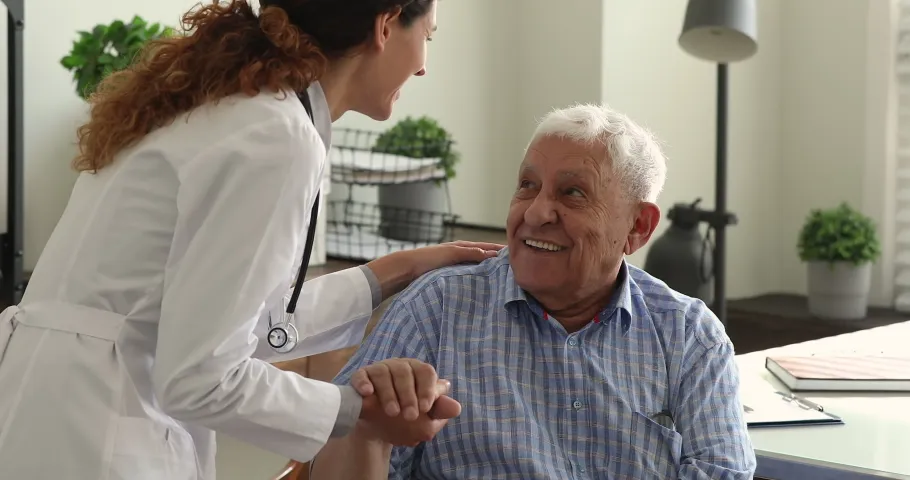As global populations experience a demographic shift toward older age groups, the demand for effective elder care strategies has never been more pressing. By 2025, 25% of the U.S. population will be 60 and older, with at least 90% of those 65 and older having one or more chronic conditions. This staggering statistic highlights the critical importance of developing sophisticated care approaches that address not just medical needs but the overall well-being of older adults.
Care management has emerged as an essential framework for meeting the complex needs of this population, moving beyond traditional disease-centered models to embrace a more comprehensive, holistic approach that honors the whole person—body, mind, and spirit. This transformative approach recognizes that optimal elder care requires coordination across multiple dimensions of health and well-being, integrating clinical care with emotional support, social connection, and spiritual fulfillment.
Understanding Care Management: Beyond Basic Medical Care
Care management represents a proactive, coordinated approach to healthcare that brings together patients, primary care providers, specialty providers, family members, and caregivers to optimize health outcomes for individuals with chronic or complex conditions. At its core, care management is about creating synergy between different aspects of healthcare, ensuring that all elements work together seamlessly to support the patient’s well-being.
Unlike traditional medical models that focus primarily on treating specific diseases or symptoms, care management takes a broader perspective, considering the whole person within their unique life context. This approach is particularly valuable for older adults who often navigate multiple chronic conditions, complex medication regimens, and various specialists simultaneously. By implementing care management, healthcare providers can reduce treatment costs, decrease hospitalization rates, eliminate unnecessary testing, and prevent adverse medication interactions.

Key Components of Care Management
Care management is a structured approach to ensuring patients receive optimal, coordinated care. Its effectiveness hinges on several core components working in tandem. These elements form a continuous cycle that begins with a thorough assessment of the patient’s needs and culminates in ongoing support and advocacy. This method transforms complex healthcare navigation into a streamlined process, ultimately improving health outcomes and enhancing the patient’s and family’s quality of life through dedicated support.
Complete Assessment
A full assessment is the critical foundation of care management. It involves gathering detailed information that extends beyond medical history to include psychosocial needs, living environment, support systems, and personal goals. This holistic evaluation helps identify potential risks, unmet needs, and strengths. By understanding the complete picture of an individual’s life, the care manager can develop a truly effective and personalized plan that addresses all factors influencing their health and well-being.
Personalized Care Planning
Following the assessment, a personalized care plan is collaboratively developed with the patient and their family. This document serves as a roadmap, outlining specific, measurable health goals and the actionable steps required to achieve them. It details interventions, assigns responsibilities, and sets timelines. The plan is dynamic, designed to be flexible and adapt to the patient’s changing needs and circumstances over time, ensuring it remains relevant and effective throughout their care journey.
Care Coordination & Communication
This component is the active engine of care management. It involves organizing and synchronizing all aspects of a patient’s care across multiple providers and services. The care manager facilitates communication between doctors, specialists, therapists, and community resources to prevent fragmentation. They ensure everyone on the healthcare team is informed and aligned, which helps eliminate contradictory advice, reduces medical errors, and creates a seamless, integrated care experience for the patient.
Ongoing Monitoring & Advocacy
The care manager provides continuous oversight to track the patient’s progress toward their goals. This involves regular check-ins, reviewing health status, and monitoring the effectiveness of the care plan. They also act as a steadfast advocate for the patient, ensuring their voice is heard and their preferences are respected within the complex healthcare system. This vigilant monitoring allows for early identification of issues and prompt adjustments to the plan as needed.
Education & Empowerment
A fundamental goal of care management is to educate and empower both patients and their caregivers. Care managers provide crucial information about conditions, treatments, and self-management strategies. By building their knowledge and confidence, patients are empowered to make informed decisions and take an active role in managing their health. This education reduces anxiety, improves adherence to treatment plans, and promotes long-term independence and better health outcomes.
Five Dimensions of Holistic Elder Care
Holistic elder care embraces five key dimensions: physical health through medical and mobility support; mental sharpness via cognitive engagement; emotional well-being fostered through connection; social health maintained by community interaction; and spiritual peace, honoring personal beliefs. This integrated approach ensures seniors receive comprehensive support, nurturing their overall quality of life and overall well-being.
Physical Care
This foundational element addresses physiological needs through assistance with daily activities, medication management, chronic disease management, and support for maintaining physical fitness through appropriate nutrition and exercise.
Mental Care
Focusing on cognitive abilities and memory, mental care involves activities designed to sharpen the mind and slow the progression of conditions like dementia and Alzheimer’s through games, puzzles, reading, and other cognitive exercises.
Emotional Care
Recognizing that emotional health significantly impacts quality of life, this dimension focuses on improving emotional well-being through genuine conversation, counseling, empathetic listening, and creating nurturing environments where seniors feel safe expressing their feelings.
Social Care
Humans are inherently social beings, and this need for connection doesn’t diminish with age. Social care encourages seniors to maintain social connections through activities, events, community engagement, and interaction with family, friends, and peers.
Spiritual Care
This often-overlooked dimension acknowledges and respects diverse spiritual beliefs, incorporating practices like yoga, meditation, and religious activities to promote mindfulness, peace, and comfort.
Key Benefits of a Holistic Care Management Approach
This approach delivers superior health outcomes by proactively addressing root causes. It significantly reduces hospitalizations and associated costs while enhancing patient satisfaction through personalized, coordinated care. Ultimately, it empowers seniors and their families, reducing caregiver stress and promoting a higher quality of life through comprehensive, person-centered support.
Improved Health Outcomes
Research has demonstrated that holistic care management approaches lead to significantly better health outcomes for older adults. Programs that address multiple dimensions of well-being simultaneously have been shown to reduce hospitalizations by an average of 20% and emergency room visits by even greater margins. For patients with specific conditions like COPD, comprehensive care management programs have demonstrated remarkable results, reducing hospitalizations by 65% and emergency visits by 44%.
The positive impact of holistic approaches extends beyond physical health outcomes. Studies have found that spiritual and religious practices can be positively correlated with mental health, social support, and overall health outcomes, especially among older people. For example, research has shown that women who attended religious services more than once weekly had a 33% lower all-cause mortality risk compared to those who never attended.
Enhanced Patient Satisfaction and Engagement
Holistic care management places the patient’s needs and preferences at the center of the care experience, leading to higher levels of satisfaction and engagement. When older adults feel seen, heard, and valued as whole people—not just collections of symptoms or conditions—they become more active participants in their care journey. This engagement leads to better adherence to treatment plans, more effective self-management behaviors, and ultimately, improved health outcomes.
Patients who receive care that acknowledges their spiritual and religious preferences report higher satisfaction, as these elements matter significantly in their approach to illness, coping mechanisms, and long-term outcomes. In fact, at least half of patients feel it is appropriate for doctors to ask about spiritual needs in some circumstances, indicating a desire for this more comprehensive approach to care.
Reduced Healthcare Costs
By addressing health issues proactively and preventing complications before they require acute care, holistic care management programs generate significant cost savings across the healthcare system. The focus on preventive care, early intervention, and coordinated services reduces unnecessary hospitalizations, duplicate tests, and emergency room visits—all of which contribute to lower overall healthcare expenditures.
Financial benefits extend beyond direct medical costs to include reduced caregiver burden and delayed institutionalization. When older adults receive support that maintains their functional abilities and independence for as long as possible, the need for expensive nursing home care is often postponed or eliminated altogether.
Empowerment for Patients and Caregivers
A holistic approach to care management empowers both older adults and their caregivers through education, support, and shared decision-making. Patients learn how to manage their conditions, mitigate risk factors, and advocate for their needs, while caregivers receive the guidance and resources necessary to provide effective support without experiencing burnout.
This empowerment effect is particularly evident in programs that incorporate self-management strategies and patient education. When individuals understand their conditions and treatment options, they feel more confident in making daily decisions that support their health and well-being.
Implementing Holistic Care Management: Practical Strategies
Effective implementation begins with interdisciplinary teams conducting comprehensive assessments. Develop personalized, dynamic care plans that integrate medical, social, and spiritual support. Utilize technology for coordination and monitoring, while leveraging community resources to address social determinants. Prioritize continuous communication and regular plan evaluations to adapt to evolving needs.
Complete Assessment and Personalized Planning
The foundation of effective holistic care management is a thorough assessment that captures not just medical information but also psychological, social, environmental, and spiritual factors that influence health and well-being. This assessment should be conducted using validated tools and frameworks that ensure all relevant dimensions are systematically evaluated.
Based on the assessment findings, healthcare teams should develop personalized care plans that address identified needs across all five dimensions of holistic health. These plans must be created in collaboration with patients and their families to ensure they reflect personal values, preferences, and goals. The most effective care plans are dynamic documents that evolve as patients’ needs change over time.
Interdisciplinary Care Coordination
Holistic care management requires seamless coordination among diverse healthcare professionals, including physicians, nurses, social workers, mental health professionals, spiritual advisors, and community resource providers. Each team member brings unique expertise and perspectives that collectively address the multifaceted needs of older adults.
Effective care coordination depends on clear communication channels, well-defined roles and responsibilities, and shared access to patient information through integrated health records. Regular team meetings and case conferences help ensure that all providers are aligned in their approach and aware of developments in the patient’s condition or circumstances.
Integration of Technology and Community Resources
Modern care management increasingly relies on technology-enabled solutions that extend the reach and impact of healthcare teams. Electronic health records (EHRs) provide comprehensive patient information accessible to all providers, while remote patient monitoring devices enable continuous tracking of vital signs and symptoms from patients’ homes. Patient portals facilitate communication, education, and engagement, allowing older adults to take a more active role in their care.
Beyond technology, successful care management programs leverage community resources to address social determinants of health that significantly impact well-being. Partnerships with local organizations can help patients access transportation services, nutritional support, social activities, and other resources that complement clinical interventions.
Spiritual and Cultural Sensitivity
As spiritual needs represent an important dimension of holistic care, healthcare providers should develop comfort and competency in addressing spiritual questions through spiritual intake assessments and respectful inquiry about religious preferences. Several validated assessment tools are available, including FICA (Faith/Beliefs, Importance, Community Address in care or action), HOPE (Hope, Organized religion, Personal spirituality, Effects of care and decision), and SPIRIT (Spiritual belief system, Personal Spirituality, Integration, Rituals/restrictions, Implications, and Terminal events).
Providers should recognize that spiritual needs vary widely among individuals—some may find comfort in organized religion, while others pursue spiritual fulfillment through different paths. Still others may not identify as spiritual or religious at all. The key is to respect each person’s beliefs (or lack thereof) and incorporate these preferences into care planning when appropriate.
Conclusion
Care management represents the essential shift from fragmented, reactive healthcare to a proactive, holistic model for elder care. By integrating support for physical, mental, emotional, social, and spiritual well-being, it honors the whole person. This approach not only improves health outcomes and reduces costs but ultimately empowers seniors to maintain their independence and quality of life. The future of effective, compassionate elder care is undeniably holistic.







